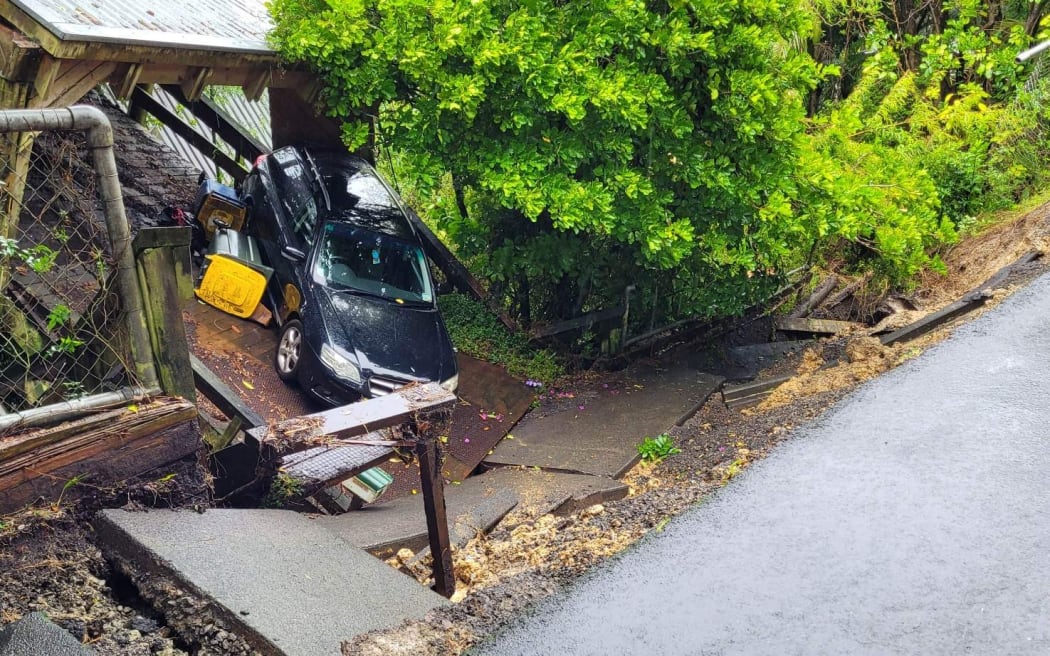Navigation for News Categories
A landslip at a property on Otitori Bay Road, Titirangi, after a third day of rain.
Photo: Supplied / Luke Moir
Uninsured businesses are being told to plan for a rainy day – literally – as insurance premiums may increase following the devastating Auckland floods.
Insurance claims for flooding damage are rising – more than 12,000 claims have now been received by our biggest insurance companies, IAG, Suncorp and Tower.
IAG’s latest tally was more than 7200. About half of those were for home damage, the rest contents, vehicles and business claims.
Suncorp Group has received about 3000 claims and Tower Insurance said 1900 had been lodged.
Chief executive of the Insurance Brokers Association Mel Gorham said the weather event was still unfolding, with more rain forecast to lash Auckland on Tuesday, but warned insurance rates could be in for a rethink as the extent of the damage from extensive flooding was revealed.
“Even before this event, insurers have been looking with greater scrutiny at the likes of flood risk, so absolutely the impact, depending on how significant it is from this event, could in turn create difficulties with insurance rising or becoming less available.”
And she had a warning for uninsured business owners, after a recent survey of Māori business network Whāriki’s 3000-odd members found up to 60 percent were uninsured.
Gorham advised businesses to avoid an all-or-nothing approach and call in an expert like a broker for advice on possible workarounds.
“Whether that be that perhaps they need to take higher excesses, they can look at that, or there might be some form of reduced cover that they could take, which means in the event of a series event, they have some insurance there that could get them back on their feet – perhaps they could withstand smaller type events or different type of events.
“It’s not a one-size-fits-all-approach, and if people are seriously considering going without insurance, I would very strongly recommend that they speak to a professional to give them advice on that, because that’s a huge call given that their livelihood depends on it.”
Gorham said a lot of small businesses were being financed or had mortgages held over from business owners’ homes and any disruption could trickle down to missed mortgage payments.
“So there is a cumulative impact if there is damage to the livelihood, which actually then means that there are some issues with being able to pay the mortgage and if that house is secured, then it creates that knock-on effect.”
Gorham said it was a good time for businesses and households to reassess their insurance policies, or indeed take one out if they’re not insured.













